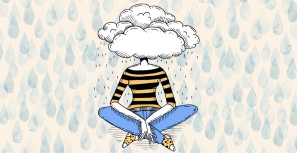Stress causes many different issues to the body, and each person experiences stress differently. When you suffer from anxiety, you constantly put your body through long-term stress, which can have both immediate and long lasting effects. When your body is in “fight or flight” mode, it generally means it is releasing stress hormones (especially adrenaline and cortisol) that can create muscle tension and an overall feeling of unpleasantness. This only adds to your existing stress and/or anxiety.
Neck pain is one of the most common physical symptoms of persistent anxiety. It does not occur in everyone, but a significant portion of sufferers experience some degree of neck pain that can range from slightly irritating to severe.
Anxiety Increases Neck Pain Risk
有几个因素可以提高颈部疼痛的可能性。如果您的颈部疼痛严重或阻碍了您的生活方式,建议您访问您的初级保健提供者。其他问题,如鞭打,椎间盘,关节炎等都可以作为颈部疼痛,但需要医疗干预。一如既往,如果你的痛苦是突然和极端的,尽快寻求医疗,以减少进一步损害的机会。
什么导致焦虑颈部疼痛?
The main cause of neck pain appears to be tension. During extremely anxious moments, your muscles contract and tense up significantly. Whenever you hear of individuals needing to get back or neck massages for “knots” in their muscles, it is often due to stress-induced muscle tension. This muscle tension especially targets the neck, shoulders, and back. The more anxiety you undergo, the more your tension may cause significant pain and discomfort.
Mindset means everything, especially in anxiety sufferers. Many people get muscle tension in their neck even if they do not have anxiety; however, those with anxiety tend to be more prone to noticing and focusing on it. Unfortunately, anxiety can cause people to fixate more on negative sensations unintentionally. This can make the neck pain feel more severe than it would to someone without anxiety, despite the pain being similar objectively.
General Neck Pain and Anxiety
出于类似的原因,患有焦虑的人可能比没有焦虑的人更容易患有较大程度的颈部不适。轻度到中度颈部疼痛是常见的,而不存在健康问题;它可以是整天坐在椅子上的结果,睡在不舒服的位置,俯视太长(特别是在手机上),而不是伸展等。
If you do not have anxiety, you might pass this off as a normal ache or pain that commonly occurs to everyone. However, if you have anxiety you might be more sensitive to physical sensations and unable to focus on anything else. Those of you who have panic attacks can have more heightened discomfort. The degree of mental energy you place on your neck may increase the pain and possibly worsen anxiety.
Neck Discomfort and Panic Attacks
那些有恐慌症的感觉可以yabo国际娱乐有颈部紧张的感觉,他们认为是痛苦的,但实际上可能只是不适导致更糟糕的感受。例如,焦虑患者可能会感知他们暂时妨碍了他们的头部,几乎好像他们的脖子很弱。
It is not clear why anxiety causes this problem, but it is quite common to those with panic attacks. As advised, if your pain and/or discomfort is moderate or severe and stopping you from performing your daily activities, please visit your primary care provider.
How to Control Neck Pain From Anxiety
一般来说,当焦虑导致颈部疼痛通过肌肉紧张时,最好的事情是控制肌肉张力第一和焦虑。大多数焦虑症状都要求您直接回应焦虑,以便症状消失,但肌肉紧张趋势徘徊。这意味着可能需要额外的治疗方法。亚博彩票网址考虑以下:
- Massage -Massage is one of the best ways to reduce neck pain. It can either be a self-massage or one performed by someone else. Either decision you make, massaging out your tense muscles can genuinely assist in reducing muscle discomfort in your body. This will also help in relieving some of the stress that caused the muscle tension to begin with.
- Hot Bath/Shower -热量的施加非常舒缓紧张的肌肉。热浴是理想的;然而,如果你站在那里足够长的时间,热水淋浴仍然有益,以便让你的肌肉热身。热力肌肉放松,使保持张力较大。对于一些,热水和/或蒸汽可能是令人焦虑的舒缓。
- Exercise -如果它不是太痛苦,锻炼可以改善肌肉张力症状。慢跑和伸展尤其有用。当你经常锻炼肌肉时,它们会在压力时期更加努力。
These strategies make it possible to reduce some of the effects of muscle tension on your body. You should also make sure you continue to sit with good posture, stretch regularly, and sleep comfortably. Regular pain may feel more severe if you have anxiety; so reducing the likelihood of pain can decrease your chances of muscle tension. But of course, if you do not address your anxiety directly, many of these symptoms will return. Overall, that is why it is best to develop a strategy to properly manage your anxiety.








